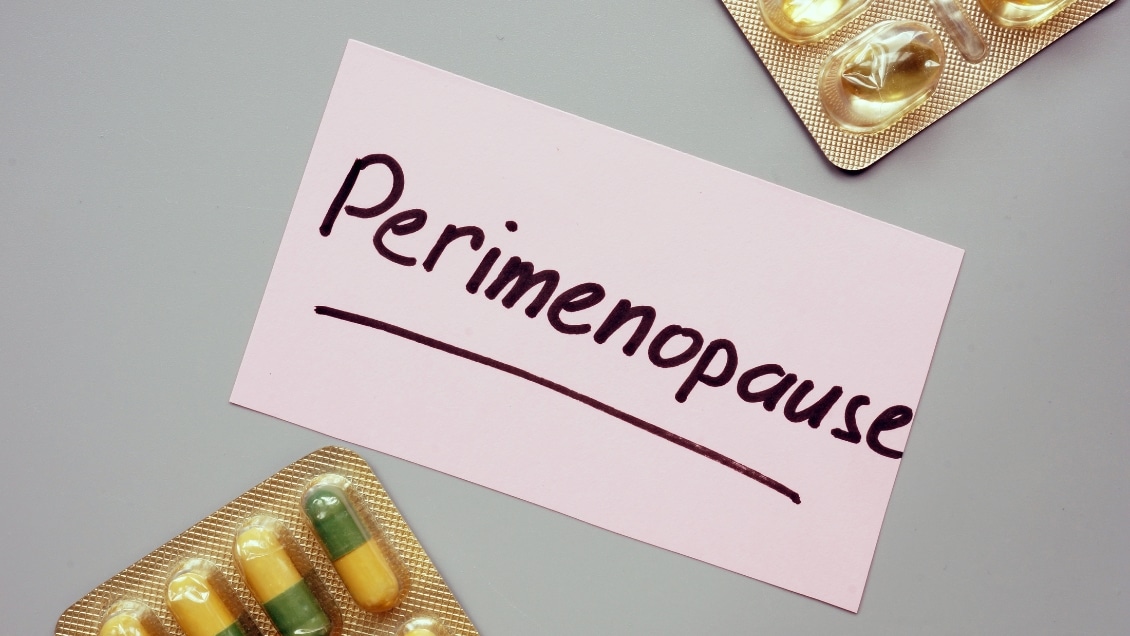Perimenopause—the often-misunderstood stage before menopause—can feel like a confusing rollercoaster of symptoms. One day, you feel fine. The next, your period is late, your sleep is off, and your mood feels like a mystery.
While it’s a natural part of ageing, perimenopause can bring significant physical and emotional changes that catch many women by surprise. At Women’s Health Hub, we want you to understand what’s happening in your body and know that you don’t have to go through it alone.
What Is Perimenopause?
Perimenopause means “around menopause.” It refers to the time—often several years—when your hormone levels begin to fluctuate, leading up to menopause (which is defined as 12 months without a menstrual period).
Most women enter perimenopause between the ages of 40 and 50, though some experience changes earlier or later. This phase can last 4 to 8 years, depending on the individual.
During perimenopause, the ovaries begin to produce less oestrogen and progesterone, which affects everything from your menstrual cycle to your brain chemistry, bone health, and metabolism.
What’s Happening in My Body?
Your body is responding to declining and fluctuating hormones, particularly oestrogen. These hormonal shifts can be erratic, causing cycles that are shorter, longer, heavier, or missed altogether. You may also begin to experience symptoms commonly associated with menopause—but with more unpredictability.
Common Symptoms of Perimenopause
Symptoms vary from woman to woman, but the most common include:
➤ Menstrual Changes
- Irregular cycles (longer, shorter, or missed)
- Heavier or lighter periods
- Spotting between periods
➤ Hormonal Symptoms
- Hot flushes and night sweats
- Breast tenderness
- Weight gain, especially around the abdomen
- Bloating and fluid retention
➤ Emotional & Mental Health Changes
- Mood swings or irritability
- Anxiety or depression
- Brain fog or forgetfulness
- Decreased motivation or energy
➤ Sleep Disruptions
- Difficulty falling or staying asleep
- Night sweats waking you up
- Fatigue even after a full night’s rest
➤ Other Physical Changes
- Vaginal dryness or discomfort during sex
- Low libido
- Headaches or worsening migraines
- Joint pain or stiffness
- Increased urinary urgency or frequency
If this sounds familiar, you’re not imagining it—and you’re not alone.
How Do I Know If I’m in Perimenopause?
Perimenopause is usually diagnosed based on symptoms and menstrual changes, rather than a single test. While hormone blood tests can provide supporting information, hormone levels often fluctuate daily, making them unreliable as standalone diagnostics.
At Women’s Health Hub, our GPs take a holistic approach:
- Detailed symptom history and cycle tracking
- Blood tests (where appropriate) to rule out other causes (e.g., thyroid, iron, prolactin)
- Consideration of age, family history, and medical conditions
- Screening for mental health, bone health, and cardiovascular risk factors
How Is Perimenopause Managed?
The goal isn’t just to “get through it” but to feel well, function optimally, and prevent long-term health issues. Treatment is individualised, based on your symptoms, health history, and preferences.
✅ Lifestyle Support (Always First Line)
- Regular exercise for mood, bone health, and metabolism
- Balanced diet with adequate calcium, protein, healthy fats
- Stress management: yoga, meditation, mindfulness
- Limiting alcohol, caffeine, and smoking
- Improving sleep hygiene
✅ Medical Options
Hormonal Treatments:
- Menopausal Hormone Therapy (MHT/HRT): Effective for hot flushes, mood swings, sleep issues, and vaginal symptoms. Safe and appropriate for many perimenopausal women.
- Hormonal IUD (e.g., Mirena): Can control heavy bleeding and provide contraception while supporting hormone therapy.
- Combined oral contraceptive pill: Sometimes used in younger perimenopausal women to stabilise hormones.
Non-Hormonal Options:
- Antidepressants (low dose): Can help with mood, hot flushes, or sleep if hormones aren’t suitable.
- Gabapentin or clonidine: For women who can’t use oestrogen.
- Vaginal oestrogen: Safe and effective for dryness or discomfort.
But I Still Need Contraception—What Should I Do?
You can still fall pregnant during perimenopause! Until you’ve had 12 consecutive months without a period, contraception is recommended if pregnancy is not desired.
Options include:
- Hormonal IUDs
- Progestin-only pills
- Combined oral contraceptive pills
- Implants or barrier methods
Our GPs can guide you through the safest, most suitable options for your situation.
Perimenopause and Long-Term Health
Perimenopause is also a critical time to screen for preventive health risks, including:
- Bone density loss (osteopenia/osteoporosis)
- Increased cardiovascular risk (higher cholesterol, blood pressure)
- Weight gain and insulin resistance
- Mental health concerns
Early support and regular health checks can help reduce the risk of chronic disease later in life.
How Women’s Health Hub Can Help
Our goal is to empower patients with knowledge, support, and collaborative care. When you visit Women’s Health Hub for endometriosis support, you can expect:
- GPs trained in women’s health and pelvic pain management
- Warm, confidential consultations
- A non-judgemental space to share your symptoms and experiences
- Personalised care plans
- Easy access to pathology, imaging, and referrals
- Ongoing support through telehealth or in-person reviews
- Collaboration with allied health and specialist providers
We also offer resources to help you understand your condition and navigate your options with confidence.
Final Thoughts
Perimenopause is a normal but often challenging part of life. Understanding the changes your body is going through—and knowing that help is available—can make a huge difference.
You are not “just hormonal.” You are in transition, and with the right care, this phase can be empowering and transformative.
📞 Book a consultation with a women’s health GP at Women’s Health Hub today.

